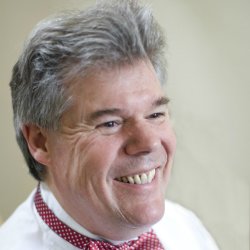Going beyond the mass scale: Exploiting state-of-the-art instrumentation to add molecular structure to 3D mass spectrometry imaging
There is a need for understanding molecular structure at the nanoscale. This includes challenges in cell biology, organic electronic devices such as OLEDs, functionalised nanoparticles used in drug delivery, 3D printing, hybrid organic/inorganic interfaces in adhesives and corrosion protection coatings.
Start date
1 January 2024Duration
4 yearsApplication deadline
Funding source
NPL iCASEFunding information
Funding covers UKRI standard stipend (£17,668 for 2022-23) and and UK “home” tuition fees for 4 years. Funding is available to cover travel, conferences and consumables. Eligibility follows standard research council rules and include UK/Irish citizenship or ordinary residence within the UK for 3 years prior to the funding commencing, but please not that in the latter case only home fees will be covered.
About
The Surrey Group have been active in secondary ion mass spectrometry (SIMS) for over thirty years using the method to unravel the complexities of interface chemistry in adhesive bonds, organic coatings on metals and fibre composite materials. During this time, the Group has collaborated extensively with industry and academia and introduced a number of novel approaches in time-of-flight SIMS (ToF-SIMS) e.g. methods for discrimination of similar polymeric materials in a coil coating (https//doi.org/10.1021/acs.analchem.7b04877).
NPL and collaborators pioneered the revolutionary OrbiSIMS instrument. The instrument has the ability to provide 3D imaging with high mass-resolving power and a depth resolution of less than 10 nm and has proven popular in a broad field of applications from organic electronics to drug discovery. Recently, NPL and collaborators published a study of key OrbiSIMS parameters and indicated the possibility for separation of molecules based on their shape, stability and kinetics of formation. Initial results indicate that in this manner it is possible to probe secondary features of materials, such as isomerism in polymers; this is an important observation as it takes SIMS from a surface chemical analysis technique to one which has the ability to provide structural information; going beyond the mass scale.
This project aims to understand the physics behind the phenomena that separates molecules by structure and leverage these to develop innovative methods to study molecules at the micro and nanoscale. Reference metal materials will be used for fundamental studies and structural isomers organic molecules will be used for the development of analytical methods. The fundamental studies will be aided by computer simulation of ion paths. The project will make use of two SIMS systems, the standard ToF-SIMS at Surrey and the OrbiSIMS at NPL. The geographical proximity of the two sites will enable ready travel between the two.
Eligibility criteria
Open to candidates who pay UK/home rate fees.
Candidates must meet Surrey graduate entry requirements which include holding at least an upper second-class degree or equivalent qualifications in a relevant subject area such as physics, chemistry, materials science, engineering, computer science or applied mathematics. A Master’s degree in a relevant discipline and additional research experience would be an advantage
How to apply
Applications should be submitted via the Engineering Materials PhD programme page. In place of a research proposal you should upload a document stating the title of the project that you wish to apply for and the name of the relevant supervisor.
There is no fixed deadline - applications will close once post is filled.
Studentship FAQs
Read our studentship FAQs to find out more about applying and funding.
Application deadline

Studentships at Surrey
We have a wide range of studentship opportunities available.

